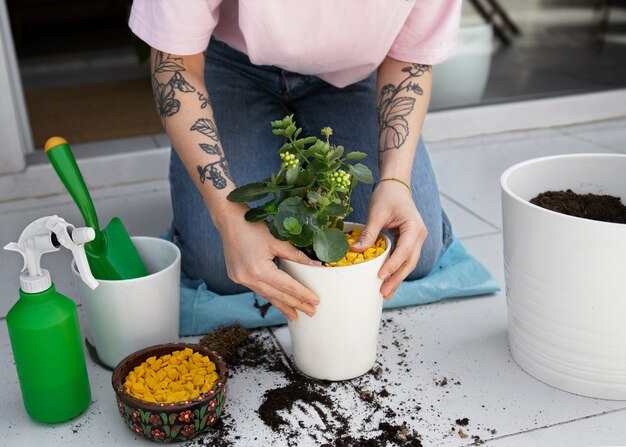
Sponsored article
If you’re seeking to contribute to a greener planet while keeping your garden lush, it’s time to explore sustainable gardening. Incorporating eco-friendly practices in your gardening habits not only enhances the aesthetic appeal of your home but also promotes a healthier environment. This guide provides an insight into the realm of sustainable gardening, urging us all to nurture our natural habitats in the gentlest manner possible.
Understanding the importance of sustainability in gardening starts with recognizing that our actions have lasting impacts on the environment. Sustainable gardening methods allow us to grow and cultivate plants in a way that uses fewer resources and does less harm to nature. They aid in maintaining ecological balance, thus ensuring a healthy and thriving Earth for future generations.
Still, many are unaware of the significant role of such practices. That’s why it’s essential to shift to sustainable gardening. Through this, we can ensure conservation of natural resources, reduction of waste and pollution, and encourage biodiversity in our backyards. Embracing the importance of sustainability in gardening means we play our part in ensuring a thriving, eco-friendly home.
Incorporation of eco-friendly techniques in your home garden can seamlessly merge sustainability and gardening. These environment-friendly methods not only promote green-living but also enhance the overall aesthetics of your garden. There are numerous eco-friendly techniques that you can incorporate for a greener home garden:
• Composting: This natural process turns your kitchen waste into nutrient-rich soil for plants, resulting in minimal waste generation and optimal plant health.
• Water Conservation: Rainwater harvesting or drip irrigation helps conserve precious water resources, proving beneficial for both the environment and your garden.
• Use of Native Plants: Planting native species can significantly reduce your garden’s maintenance requirements while promoting biodiversity. These plants are already adapted to local conditions and thus require less watering and fertilizers.
Embracing sustainable gardening benefits your home, health, and the environment in significant ways. For your home, it’s a beautiful, natural aesthetic that can elevate property value. Sustainable gardening practices also boost your health through the reduction of harmful chemicals while promoting peace through the tranquil sounds of nature and the joy of nurturing life.
But the most transformative benefits of sustainable gardening lie in its potential to protect and nourish our environment. Sustainable gardening invites an array of beneficial insects and birds, boosting biodiversity. It also optimizes water usage, reduces carbon footprint, and eliminates the need for harmful pesticides and fertilizers. Embrace sustainable gardening to enjoy these benefits and contribute to a healthier planet.